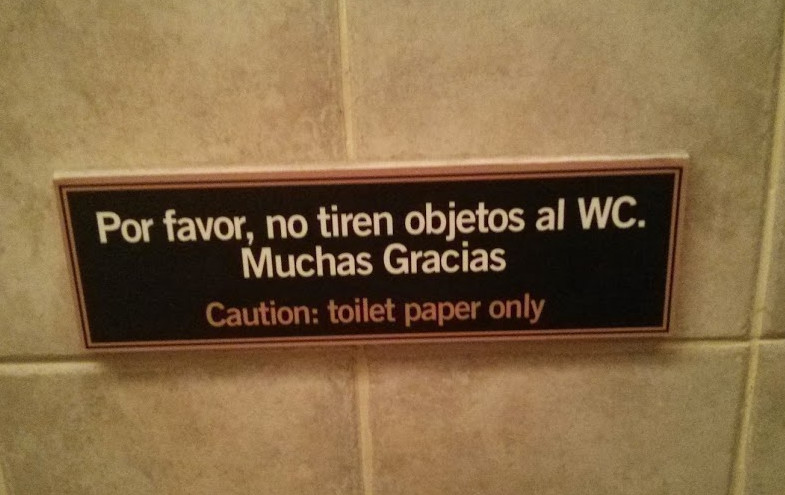In "The Grapes of Wrath" there's a scene where they're talking about toilets. When the water in the toilet is discussed, in the translation ("Las Uvas de la Ira"), the word is not translated (to "agua" as would be expected), but it remains "water"
Why would that be?
UPDATE
Here it is:
"Lady come in las' week, an' she got in here 'fore the committee got to her, an' she had her ol' man's pants in the toilet,..."
Translation:
"Una senora llego la semana pasada y entro aqui antes de que la visitara el comite y habia metido los pantalones de su marido en el water,..."
So it wasn't water:water after all, it's toilet:water, but still it seems an odd translation to me...

